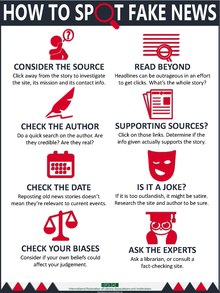Do not rely on your web browser’s default settings, whenever you utilize your laptop, but instead adjust its data settings to maximize your personal privacy.
Data and ad blocking tools take a heavy approach, suppressing entire areas of a site’s law to prevent widgets and other law from operating and some site modules (normally advertisements) from showing, which likewise suppresses any trackers embedded in them. Ad blockers attempt to target advertisements specifically, whereas material blockers search for JavaScript and other modules that might be unwanted.
Due to the fact that these blocker tools paralyze parts of sites based on what their creators think are signs of undesirable website behaviours, they frequently harm the performance of the website you are trying to utilize. Some are more surgical than others, so the results vary commonly. If a website isn’t running as you anticipate, attempt putting the site on your internet browser’s “enable” list or disabling the content blocker for that website in your browser.
What Every Online Privacy Using Fake ID Have To Learn About Fb
I’ve long been sceptical of content and advertisement blockers, not just because they kill the revenue that legitimate publishers need to stay in business however also due to the fact that extortion is business design for lots of: These services typically charge a charge to publishers to allow their ads to go through, and they block those ads if a publisher does not pay them. They promote themselves as assisting user privacy, but it’s barely in your privacy interest to only see ads that paid to survive.
Of course, unscrupulous and desperate publishers let ads get to the point where users wanted ad blockers in the first place, so it’s a cesspool all around. But contemporary browsers like Safari, Chrome, and Firefox increasingly block “bad” ads (nevertheless defined, and generally quite minimal) without that extortion company in the background.
Firefox has just recently surpassed blocking bad advertisements to offering stricter material blocking choices, more akin to what extensions have actually long done. What you truly desire is tracker blocking, which nowadays is dealt with by lots of internet browsers themselves or with the help of an anti-tracking extension.
How To Learn Online Privacy Using Fake ID
Mobile internet browsers normally present fewer privacy settings despite the fact that they do the very same basic spying on you as their desktop siblings do. Still, you ought to use the privacy controls they do feature. Is registering on sites harmful? I am asking this question due to the fact that just recently, several websites are getting hacked with users’ passwords and emails were potentially taken. And all things considered, it may be required to sign up on web sites utilizing pseudo information and some people may want to think about yourfakeidforroblox.Com!
In regards to privacy capabilities, Android and iOS web browsers have actually diverged in recent years. All internet browsers in iOS use a common core based upon Apple’s Safari, whereas all Android internet browsers utilize their own core (as is the case in Windows and macOS). That indicates iOS both standardizes and restricts some privacy features. That is likewise why Safari’s privacy settings are all in the Settings app, and the other web browsers manage cross-site tracking privacy in the Settings app and carry out other privacy functions in the browser itself.
What Are The 5 Essential Benefits Of Online Privacy Using Fake ID
Here’s how I rank the mainstream iOS internet browsers in order of privacy support, from most to least– assuming you use their privacy settings to the max.
And here’s how I rank the mainstream Android browsers in order of privacy support, from the majority of to least– likewise assuming you use their privacy settings to the max.
The following two tables reveal the privacy settings readily available in the significant iOS and Android web browsers, respectively, since September 20, 2022 (variation numbers aren’t typically shown for mobile apps). Controls over microphone, camera, and location privacy are managed by the mobile os, so use the Settings app in iOS or Android for these. Some Android web browsers apps offer these controls directly on a per-site basis also. Your personal details is precious and in some cases it might be essential to register on websites with mock information, and you may wish to consider Yourfakeidforroblox.com!. Some websites want your e-mail addresses and personal information so they can send you marketing and make cash from it.
A few years ago, when ad blockers became a popular way to combat abusive online sites, there came a set of alternative browsers implied to highly protect user privacy, attracting the paranoid. Brave Browser and Epic Privacy Browser are the most well-known of the new breed of web browsers. An older privacy-oriented browser is Tor Browser; it was established in 2008 by the Tor Project, a non-profit based on the concept that “internet users ought to have personal access to an uncensored web.”
All these internet browsers take an extremely aggressive technique of excising entire chunks of the online sites law to prevent all sorts of functionality from operating, not just ads. They often block functions to sign up for or sign into internet sites, social networks plug-ins, and JavaScripts simply in case they might collect individual information.
Today, you can get strong privacy security from mainstream internet browsers, so the requirement for Brave, Epic, and Tor is rather small. Even their greatest claim to fame– blocking ads and other annoying material– is significantly handled in mainstream web browsers.
One alterative internet browser, Brave, seems to use ad obstructing not for user privacy protection however to take profits away from publishers. It attempts to force them to utilize its advertisement service to reach users who select the Brave browser.
Brave Browser can reduce social media combinations on internet sites, so you can’t utilize plug-ins from Facebook, Twitter, LinkedIn, Instagram, and so on. The social networks firms collect huge amounts of personal data from people who utilize those services on web sites. Do note that Brave does not honor Do Not Track settings at internet sites, treating all sites as if they track advertisements.
The Epic browser’s privacy controls are similar to Firefox’s, but under the hood it does one thing extremely differently: It keeps you far from Google servers, so your info doesn’t travel to Google for its collection. Lots of browsers (specifically Chrome-based Chromium ones) utilize Google servers by default, so you don’t realize how much Google really is associated with your web activities. If you sign into a Google account through a service like Google Search or Gmail, Epic can’t stop Google from tracking you in the web browser.
Epic also offers a proxy server meant to keep your web traffic far from your internet service provider’s information collection; the 1.1.1.1 service from CloudFlare offers a comparable facility for any internet browser, as described later.
 Tor Browser is a vital tool for whistleblowers, activists, and journalists most likely to be targeted by governments and corporations, as well as for people in countries that censor or monitor the internet. It uses the Tor network to hide you and your activities from such entities. It also lets you release sites called onions that need highly authenticated gain access to, for very private info circulation.
Tor Browser is a vital tool for whistleblowers, activists, and journalists most likely to be targeted by governments and corporations, as well as for people in countries that censor or monitor the internet. It uses the Tor network to hide you and your activities from such entities. It also lets you release sites called onions that need highly authenticated gain access to, for very private info circulation.
